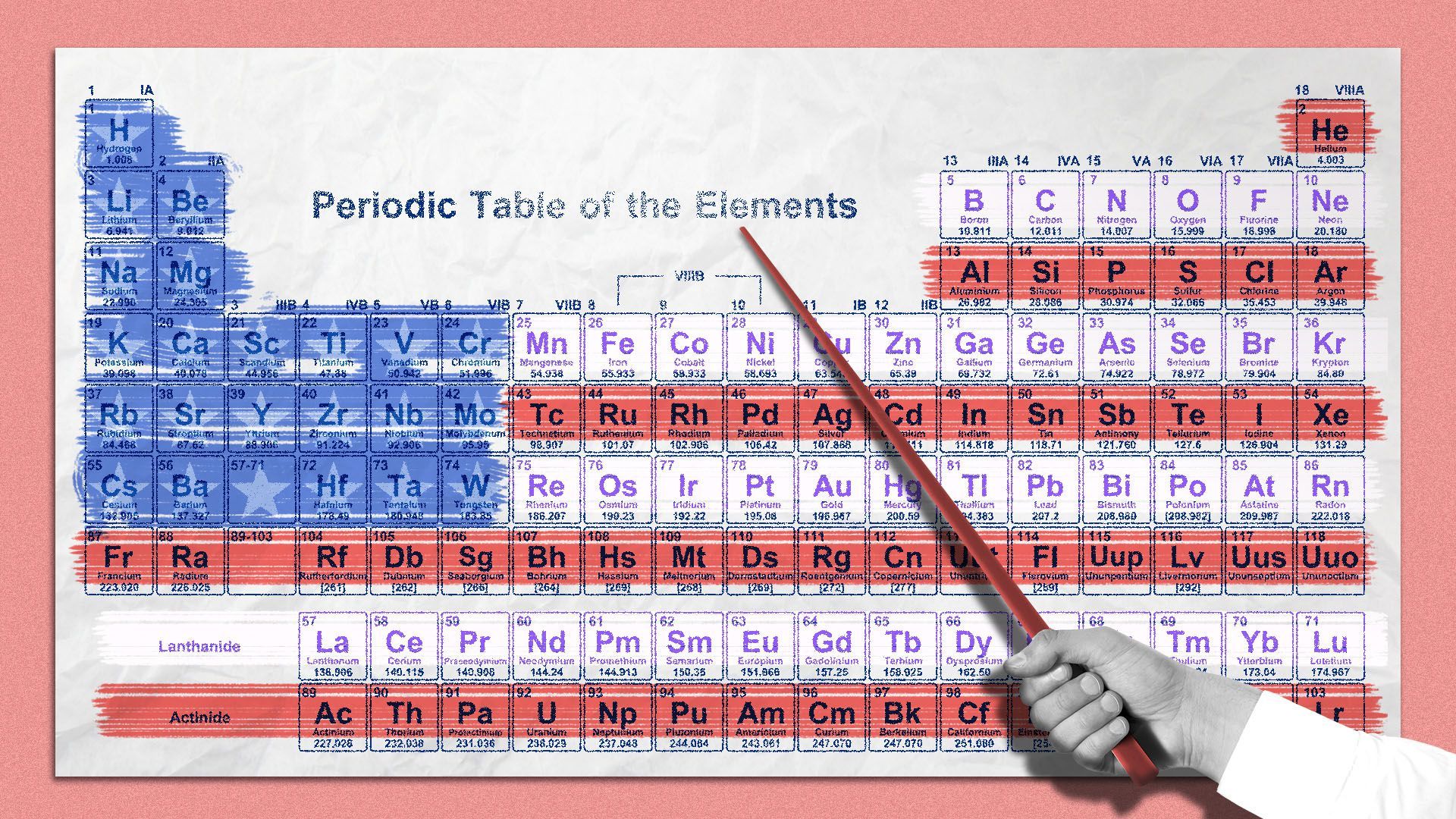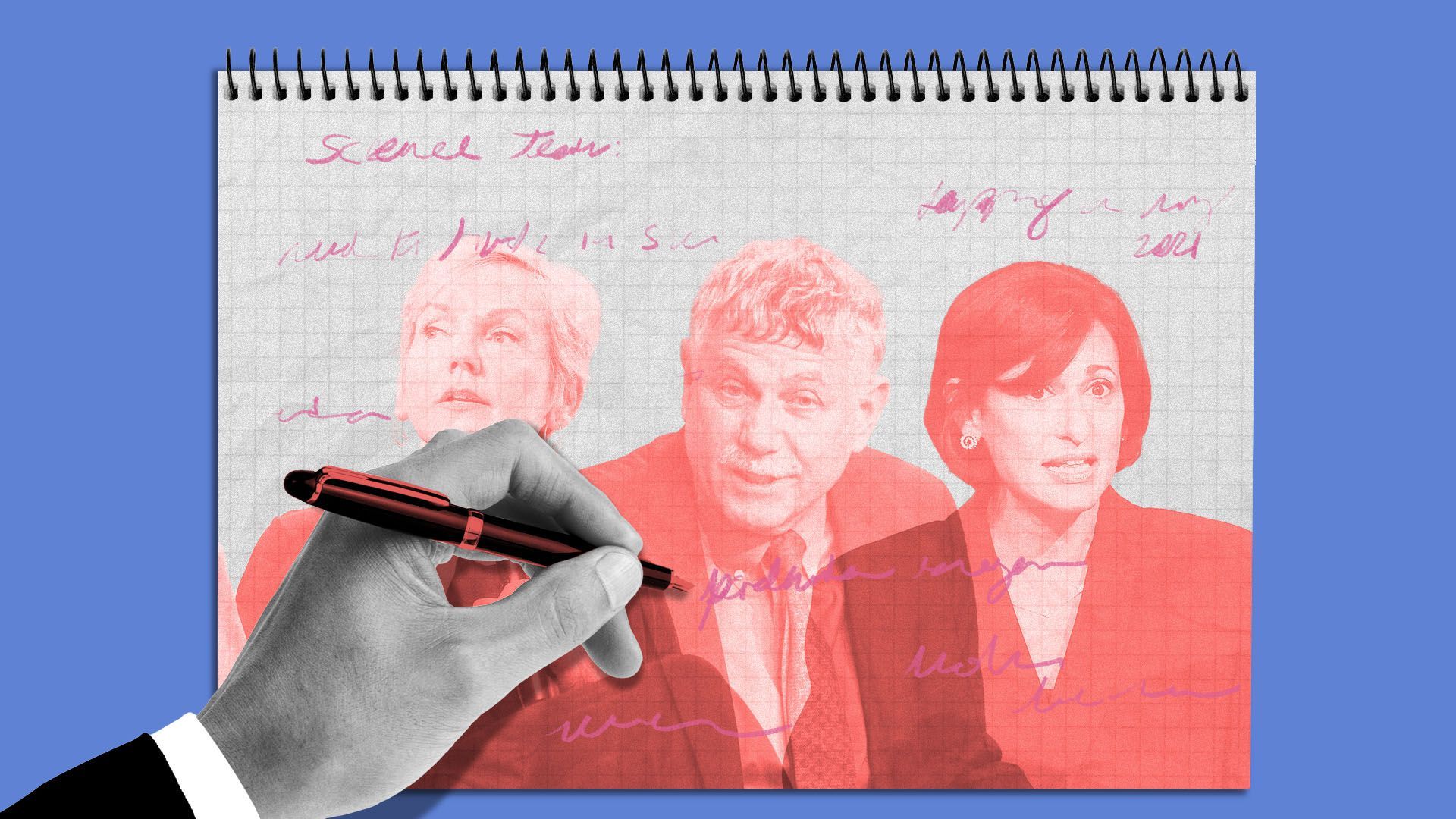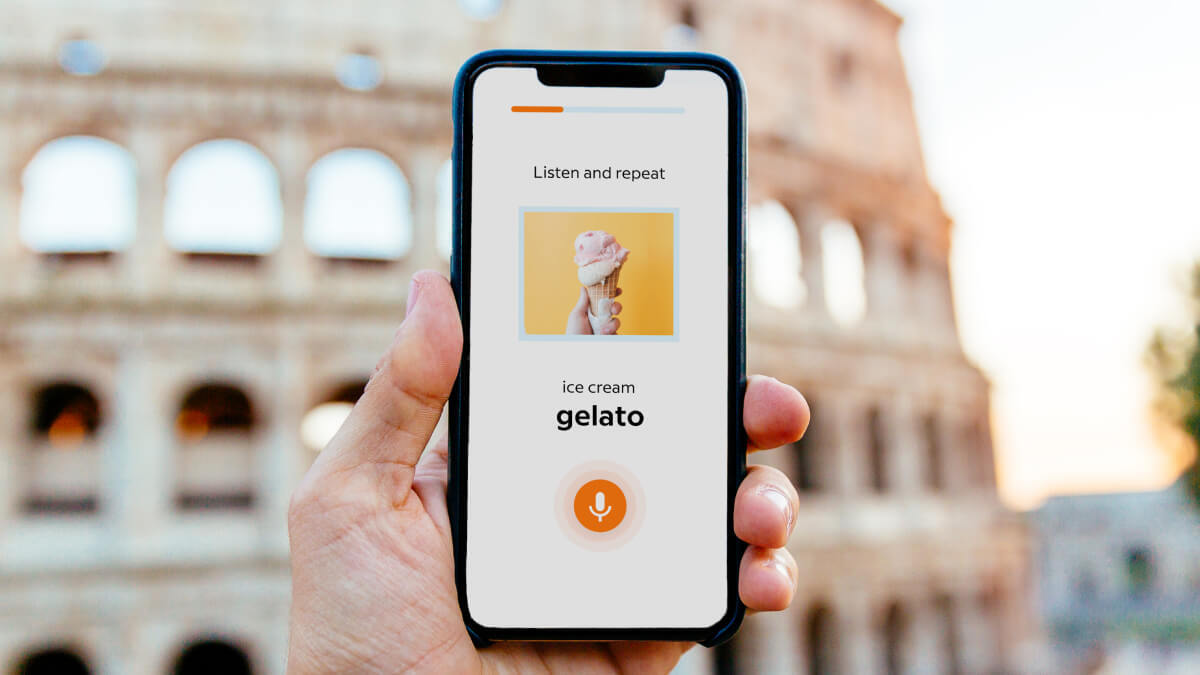| | | | | | | Presented By Babbel | | | | Axios Science | | By Alison Snyder ·Jan 21, 2021 | | Welcome back. This week's newsletter is 1,422 words or about a 5-minute read. | | | | | | 1 big thing: Biden seeks to "refresh" America's science strategy |  | | | Illustration: Sarah Grillo/Axios | | | | President Biden is tasking his new science adviser with examining the long-term U.S. strategy for science and technology amid competition from China and deepening inequality at home. The big picture: The post-World War II framework for scientific research in the U.S. drove decades of prosperity for the country. But the U.S., the world and the practice of science have all changed dramatically since then, prompting calls to adjust the model. What's new: In a letter last week, Biden asked geneticist Eric Lander — his pick as presidential science adviser — to "refresh and reinvigorate our national science and technology strategy to set us on a strong course for the next 75 years." - Biden posed five questions, including what lessons from the pandemic can be applied to other areas of public health, how science and technology advances can be used to address climate change, and how to protect the "long-term health of science and technology" in the United States.
- He also asked how the U.S. can compete globally as China rises and how to ensure that the benefits of "science and technology are fully shared across America and among all Americans."
Biden's letter echoed one Franklin Roosevelt wrote to his science adviser, Vannevar Bush, more than 75 years ago that resulted in significant government investments in R&D, which paid long-term economic dividends for the U.S. But those investments clustered in areas like Boston and Washington, D.C., which continued to benefit decades later, while other regions were neglected. - And beneficial technologies — whether in computing or biomedicine — haven't been accessible to people who are already marginalized, says Shobita Parthasarathy, a professor of public policy at the University of Michigan.
- "Our innovation institutions, policies and practices may maximize science and economic benefit, but they don't maximize social benefit," Parthasarathy says.
- Giving people more involvement in decision-making about what research is prioritized and how it is carried out could help "align government's values with citizens' values," she adds.
Of note: Biden named Alondra Nelson, a sociologist who studies the intersection of science, technology and social inequality, as the deputy director for science and society in the Office of Science Technology and Policy, a new position. - Whether and how her focus is carried over to other science agencies will be key to addressing the challenges Biden laid out, Parthasarathy says.
The backdrop for science also shifted rapidly — from a world dominated by Western countries, where the federal government was the chief source of funding, to a landscape of global competitors and influential businesses. - The federal government has become less central to R&D funding over the last decade. Between 2010 and 2018, the share of U.S. R&D expenditures grew from 61% to almost 70% for businesses while the federal government's portion dropped from about 31% to 22%.
- And while the U.S. invests more in basic research than China, Beijing continues to close the gap in total R&D spending, and researchers in China are notching scientific advances in space, quantum computing, AI and biomedicine — areas both governments identify as key to global competition.
Combined, those shifts raise the question of how the federal government should now invest in R&D, with some experts calling for more-focused funding in key strategic areas. - "Identifying priorities like that is a good idea for the new administration, but it also needs to focus on growing federal funding for R&D and giving it a higher priority than it has had since the days of Apollo," says Neal Lane, who was science adviser to former President Bill Clinton and is now a professor at Rice University's Baker Institute.
The bottom line: Vannevar Bush's model helped to usher in a new world. For science to better support the world we live in now, it'll likely have to evolve. |     | | | | | | 2. The Biden science team |  | | | Photo illustration: Sarah Grillo/Axios. Photos: Alex Wong, Steve Jennings, Chip Somodevilla/Getty Images | | | | Biden quickly named a range of scientists and policymakers to advise his administration. Here are some of the key players appointed to agencies and offices that oversee scientific research and who will shape how science informs U.S. policy: Office of Science Technology and Policy (OSTP): Last week, Biden announced the White House's science team, led by Lander, who is president and founding director of the Broad Institute. - Lander, who played a key role in the Human Genome Project and would be the first biologist to lead OSTP, has drawn criticism at times, BuzzFeed's Peter Aldhous reports.
- The White House post will be part of the Cabinet for the first time.
Centers for Disease Control and Prevention: Biden chose Rochelle Walensky, chief of the Division of Infectious Diseases at Massachusetts General Hospital and an expert on HIV, to lead the agency. National Institutes of Health: Francis Collins, who has served as director of the institutes since 2009, will continue to lead the agency. - Anthony Fauci will stay on as director of the National Institute of Allergy and Infectious Diseases and will be Biden's chief medical adviser.
Environmental Protection Agency: Michael Regan, currently secretary of the North Carolina Department of Environmental Quality and a former air quality specialist for EPA, is nominated to lead the agency. - He too will have to rebuild trust in the agency — including internally, where expert advice and scientific data were undermined during the Trump administration, Jeff Tollefson recently wrote in Nature News.
Department of Energy: Former Michigan Gov. Jennifer Granholm is Biden's pick for secretary of energy. She'll oversee 17 national labs, including some focused on renewable energy technologies that will underpin the new administration's climate and energy plans. The administration's pandemic response team will include former FDA Administrator David Kessler, who will be chief science officer. (STAT's Rachel Cohrs has a good roundup of the officials tasked with the COVID-19 response.) John Kerry will be Biden's climate envoy, and Gina McCarthy, former EPA administrator under Barack Obama, will focus on the climate response within the U.S. Lander, Regan and Granholm require Senate confirmation. What to watch: Biden has yet to name his choices to lead NASA and NOAA, two other agencies with large scientific workforces and research purviews. The bottom line: The new administration is tapping deep scientific expertise. Leveraging it for today — and tomorrow — will hinge on how it is coordinated and focused. |     | | | | | | 3. Catch up on COVID-19 |  Data: The COVID Tracking Project, state health departments; Map: Andrew Witherspoon/Axios "The pace of new coronavirus infections fell significantly over the past week, but the virus is still out of control, and a more contagious variant is gaining ground," Axios' Sam Baker and Andrew Witherspoon write. Anthony Fauci told the WHO this morning the Biden administration intends to join the COVAX initiative to make COVID-19 vaccines available to poorer countries. The immune system may mistakenly turn on the body in some of the most severe and long-lasting cases of COVID-19, Roxanne Khamsi reports for Nature News. |     | | | | | | A message from Babbel | | Start speaking a new language in three weeks | | |  | | | | In 2021, let language take you places with Babbel. The background: This language learning app gives you bite-sized, manageable lessons in a variety of languages. It'll have you speaking the basics in three weeks. Sign up today and get 60% off. | | | | | | 4. Worthy of your time |  | | | Illustration: Aïda Amer/Axios | | | | The inner life of galaxies (Miriam Kramer — Axios) Breathing life into the corpse flower (Doug Johnson — Undark) A new way of looking at concussions (Helen Santoro — Knowable) Scientists just took a step toward using living cells as hard drives (Emily Mullin — Future Human) |     | | | | | | 5. Something wondrous |  | | | "Plumelets" on the Sun. Image: NASA/SDO/Uritsky, et al. | | | | Relatively small structures on the Sun could be governing the solar wind, Axios' Miriam Kramer writes. Why it matters: Solar wind batters the Earth's magnetic field, and strong solar storms can disrupt satellites and even power grids on the planet. Learning more about how they work will help researchers forecast solar weather in the future. Details: Solar wind — which is made of plasma — is propelled into space along the Sun's magnetic field lines. - Now, researchers have found that smaller "plumelets" that make up bright structures known as plumes not far from the Sun's surface could disrupt the solar wind, having cascading effects out into space, according to a new study in The Astrophysical Journal.
- "People have seen structure in and at the base of plumes for a while," NASA's Judy Karpen, one of the authors of the study, said in a statement. "But we've found that the plume itself is a bundle of these denser, flowing plumelets, which is very different from the picture of plumes we had before."
- The research team found that plumelets also move independently, which could help them figure out more about how even just a few of these small structures contribute to changes in the solar wind.
The big picture: A number of missions launched in recent years are keeping an eye on the Sun, gathering data that could help forecast its weather in the future. |     | | | | | | A message from Babbel | | Start the new year with a new language | | |  | | | | In 2021, let language take you places with Babbel. The background: This language learning app gives you bite-sized, manageable lessons in a variety of languages. It'll have you speaking the basics in three weeks. Sign up today and get 60% off. | | | | | | Axios thanks our partners for supporting our newsletters.
Sponsorship has no influence on editorial content. Axios, 3100 Clarendon Blvd, Suite 1300, Arlington VA 22201 | | | You received this email because you signed up for newsletters from Axios.
Change your preferences or unsubscribe here. | | | Was this email forwarded to you?
Sign up now to get Axios in your inbox. | | | | Follow Axios on social media:    | | | | | |









No comments:
Post a Comment